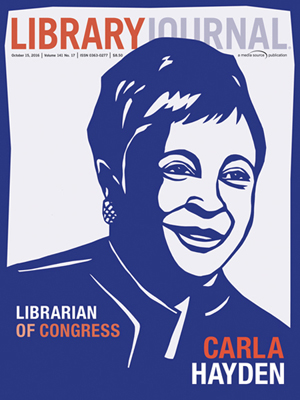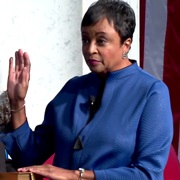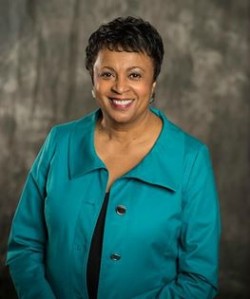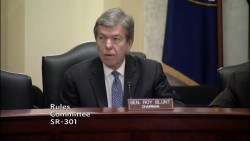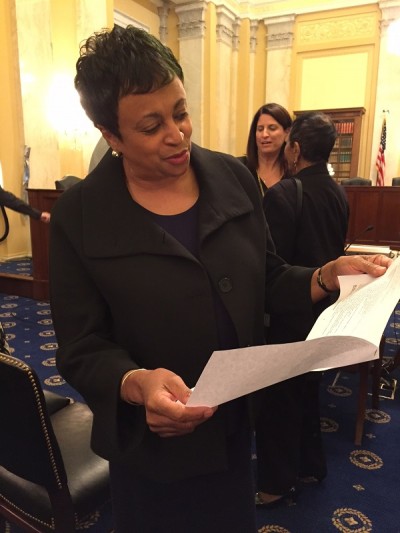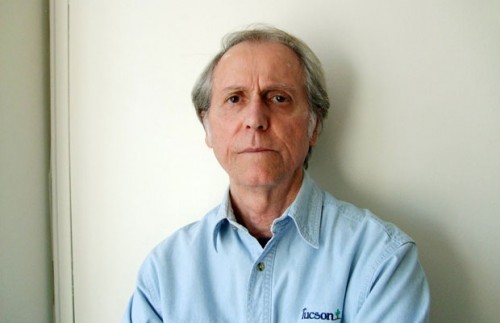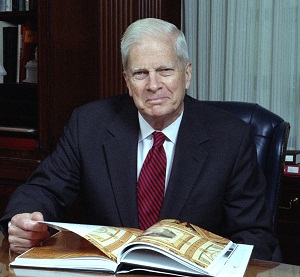Related
Graduates who were looking for a position with a new employer shared their experiences when conducting their job search.
An axiom of the Information Age is that LIS skill sets are versatile and valuable in a wide array of work environments, in addition to libraries of all kinds.
LJ's annual Placements & Salaries survey reveals that salaries are flattening somewhat—but there also are glimmers of improvement in gender pay inequities and interesting shifts across employment sectors.
What’s old is new again in this year’s job market for newly credentialed librarians. Our snapshot shows placements are resurging in traditional library settings, as well as continuing to gain strength in nontraditional areas that benefit from classic LIS skill sets.
Students who can confidently analyze primary sources “look at things with a critical eye,” says school librarian Tom Bober. But cultivating this crucial skill can be daunting, as he discovered as a classroom teacher. After attending the Library of Congress (LC) Summer Institute in 2013, however, Bober was armed with strategies—and ready to spread the word.
Over the past eight years, Trevor Owens has moved from the Library of Congress (LC) to the Institute of Museum and Library Services (IMLS) and back to LC. The common thread that runs through each role, however, is his ability to see the big picture and think strategically about digital materials and the policies surrounding them. Owens “has the rare capacity to convert critical intellectual engagement with the challenges that libraries face into practical guidance that resonates with a wide range of librarians,” says nominator Thomas Padilla, visiting digital research services librarian at the University of Nevada, Las Vegas.
In August, Trevor Owens became the first head of digital content management in library services at the Library of Congress (LC). The role at LC represents something of a full circle for Owens; before serving in various roles at the Institute of Museum and Library Services from 2015–17, most recently as acting associate deputy director for libraries, Owens was a digital archivist at LC’s Office of Strategic Initiatives since 2010. The position, on the other hand, is brand new—both to Owens and to LC.
The Library of Congress (LC) recently launched labs.loc.gov, a new online space that facilitates creative use of the Library’s digital collections.
The American Folklife Center at the Library of Congress (LC) announced June 15 the creation of two new born-digital collections: the Web Cultures Web Archive (WCWA), which will feature memes, GIFs, and image macros that surface in online pop culture, and the Webcomics Web Archive (WWA), which will collect comics created for an online audience.
A bill empowering the president to appoint the next Register of Copyrights, which would effectively remove jurisdiction over the position from the Librarian of Congress, sailed through the House of Representatives 378–48 on April 26 and will now continue to the Senate. The Register of Copyrights Selection and Accountability Act, also known as HR 1695, was introduced on March 23, and would make the Register—who has traditionally been appointed by the Librarian of Congress—a presidential appointment, with the advice and consent of the senate.
On May 6, the Library of Congress (LC) was transformed into a disco for one night. Librarians from the Washington, DC, area (as well as 23 other states, Australia, Mexico, and Switzerland) dressed up in their finest ’70s vintage duds and danced the night away under a mirror ball in the Great Hall of LC’s Thomas Jefferson Building. DJs spun tunes, disco diva Gloria Gaynor belted, and—to everyone’s delight—Librarian of Congress Carla Hayden donned a formidable afro wig and mirror ball earrings.
In the wake of the October 29 resignation of Maria Pallante, the former Register of Copyrights, the Library of Congress (LC) has put out a call to the public for input on the expertise needed by the next Register of Copyrights. (On January 17, Pallante will join the Association of American Publishers as president and CEO). The survey, posted on the LC website on December 16, invites the public to answer a series of questions about the knowledge, skills, abilities, and priorities that the incoming Register should possess.
As the United States—and the world—prepare for the January 20, 2017 presidential inauguration, libraries, institutions, and citizens are joining forces to identify federal government websites to be captured and saved in the End of Term (EOT) Web Archive.
On Halloween night, Friends and trustees of New York Public Library (NYPL) got a treat that didn’t require a costume: Librarian of Congress Carla Hayden and NYPL President Tony Marx sat down together for a lively hour-long discussion of research, preservation, digitization, Hayden’s plans for the Library of Congress (LC), and the influence of Hamilton.
On Monday, October 24, Register of Copyrights Maria Pallante declined a reassignment and resigned from the Library of Congress (LC). Pallante had sought to have the copyright office removed from LC oversight.
A new era has begun for the Library of Congress (LC), and if Carla Hayden’s first gestures in her role as Librarian of Congress signal sustained momentum to come, the LC of the future might just live up to the hopes of so many. Since her swearing in, on September 14, Hayden has set a compelling tone, one that is purposeful, inclusive, and infused with an important balance between the awesome responsibility of, and a sense of joy in, the work to come.
On September 14, Dr. Carla Hayden was sworn in as the new Librarian of Congress. The first African American and the first woman to hold the position in American history, she is also only the third to have worked in a library prior to her appointment. After a moving ceremony in the Library of Congress’s (LC) 1897 Jefferson Building and a reception to meet “as many staff members as they could stand,” Hayden sat down with LJ in her ceremonial office to outline her vision for the library.
At a historic ceremony on September 14 library leaders from around the country, Washington elected officials, Library of Congress (LC) staff, friends, family, and a cheering section of former employees crowded into the Great Hall of LC’s Thomas Jefferson Building to see Dr. Carla Hayden sworn in as the 14th Librarian of Congress. Hayden, former CEO of the Enoch Pratt Free Library (EPFL) in Baltimore, is the first woman and the first African American to serve in the role—and only the third practicing librarian.
In what is being widely celebrated as a historic decision, Carla D. Hayden was confirmed as the 14th Librarian of Congress July 13 by a Senate majority vote of 74–18. Hayden, currently CEO of the Enoch Pratt Free Library (EPFL) in Baltimore and LJ’s 1995 Librarian of the Year, will be the first woman and the first African American to lead the Library of Congress (LC). She will succeed former Librarian of Congress James Billington, who stepped down in September 2015 after 28 years. Hayden will serve at least one ten-year term, thanks to new term limit legislation passed last year.
At a four-minute hearing on June 9, the United States Senate Committee on Rules and Administration voted unanimously to approve the nomination of Carla D. Hayden to serve as the 14th Librarian of Congress. The committee’s voice vote was unanimous that Hayden’s nomination be reported to the full Senate for consideration with the recommendation that it be approved. Hayden, who was nominated in February by President Barack Obama to succeed former Librarian James Billington, testified before the committee at a strongly positive hearing on April 20.
Copyright is the only right defined in the main text of the U.S. Constitution. It is specified in Article 1, Section 8, so it didn’t have to be added in the amendments known as the Bill of Rights, which tells us how important the concept of copyright was to the founders. They enumerated its dimensions in a sparse sentence: "To promote the Progress of science and useful Arts by securing for limited times to Authors and Inventors the exclusive Right to their respective Writings and Discoveries."
In an amicable session on April 20, Librarian of Congress nominee Carla D. Hayden testified at a Senate Committee on Rules and Administration hearing in Washington, DC. Hayden, who was nominated by President Barack Obama in February to succeed former Librarian James Billington, offered her personal testimony and answered questions on a range of issues concerning the Library of Congress (LC). The room was packed with enthusiastic supporters, including members of the American Library Association (ALA), of which Hayden was president from 2003–04; elected officials; a large contingent from Maryland, where Hayden currently serves as a CEO of Baltimore’s Enoch Pratt Free Library (EPFL), and Hayden’s mother.
Macmillan debuts a new YA imprint. Win free copies of Reproductive Rights—a teen nonfiction title. Apply for Library of Congress literacy grants. An eighth Harry Potter book was just announced. These tidbits and more in SLJTeen’s news roundup.
All eyes are on the Library of Congress (LC) as the iconic institution approaches what promises to be a transformational time. When long-standing Librarian of Congress James H. Billington announced his plan to retire in January 2016, bets started flying on who would be the best new leader. The job, to be filled by President Barack Obama’s appointment, with confirmation from Congress, is an exciting and challenging one.
“I am not a librarian, but I am THE librarian!” Daniel Boorstin said to me several times when he was Librarian of Congress. It seemed to amuse him, and it only slightly annoyed me. There had been some controversy over President Gerald Ford, like so many before him, appointing a distinguished elder scholar to lead the Library of Congress (LC) rather than a credentialed, experienced librarian. Of the 13 Librarians of Congress, only two were really librarians.
James H. Billington, who has served as the 13th Librarian of Congress since he was appointed by President Ronald Reagan in 1987, announced on June 10 that he would retire effective January 1, 2016.
President Barack Obama’s $3.9 trillion budget for fiscal year 2015 proposes slight cuts in federal library spending, strongly promotes a variety of early education programs, and funds an ongoing mission to connect students to high-speed Internet in their schools and libraries.
In some ways, romance novels are the dirty little secret of the literary world. Largely ignored by mainstream critics, regularly maligned by academics, and sometimes hidden away even by their readers, romances are nevertheless responsible for as much as 50 percent of annual mass market paperback sales in the U.S.. Now, the organizers of the Popular Romance Project (PRP) are trying to rewrite the narrative, bringing romance to the attention of those who might not already pay attention to the genre by showcasing its diversity and depth and the community of authors and fans that drive its enduring popularity.
Hachette Book Group on May 29 announced plans to provide unabridged audiobook recordings for free to the National Library Service for the Blind and Physically Handicapped (NLS), a division of the Library of Congress (LOC). Select backlist and new titles, including new releases, will be available through NLS’s Talking Books program by the end of 2013
The Library of Congress announced Thursday the creation of a new lifetime achievement award in literature as well as its first recipient—novelist Don DeLillo.
This country’s fascinating and invaluable patrimony of recorded sound and culture is at risk. Libraries, archives, museums, and historical societies have approximately 46 million recordings in their collections and more than six million are “in need” or “in urgent need” of preservation, according to the National Recording Preservation Plan released by the Library of Congress (LC) in December. The condition of another 20 million of the recordings is unknown, and these numbers do not include important material in private hands.
This week, the Library of Congress (LC) argued that the legality of unlocking cellphones is not an issue that should be decided using the library’s power to grant Digital Millennium Copyright Act exemptions.
The pending federal budget sequestration could cut the appropriations budget of the Government Printing Office by 5.3%, or approximately $6.7 million. In addition, the GPO is expecting that the sequester will force other federal agencies to cut back on ordering printing and information services from the GPO, which would also lower the agency’s revenue.
From a LC Announcement: The Library of Congress today unveiled “The Library of Congress National Recording Preservation Plan,” a blueprint for saving America’s recorded sound heritage for future generations. The congressionally mandated plan spells out 32 short- and long-term recommendations involving both the public and private sectors and covering infrastructure, preservation, access, education and policy [...]
articles
ALREADY A SUBSCRIBER? LOG IN
We are currently offering this content for free. Sign up now to activate your personal profile, where you can save articles for future viewing













